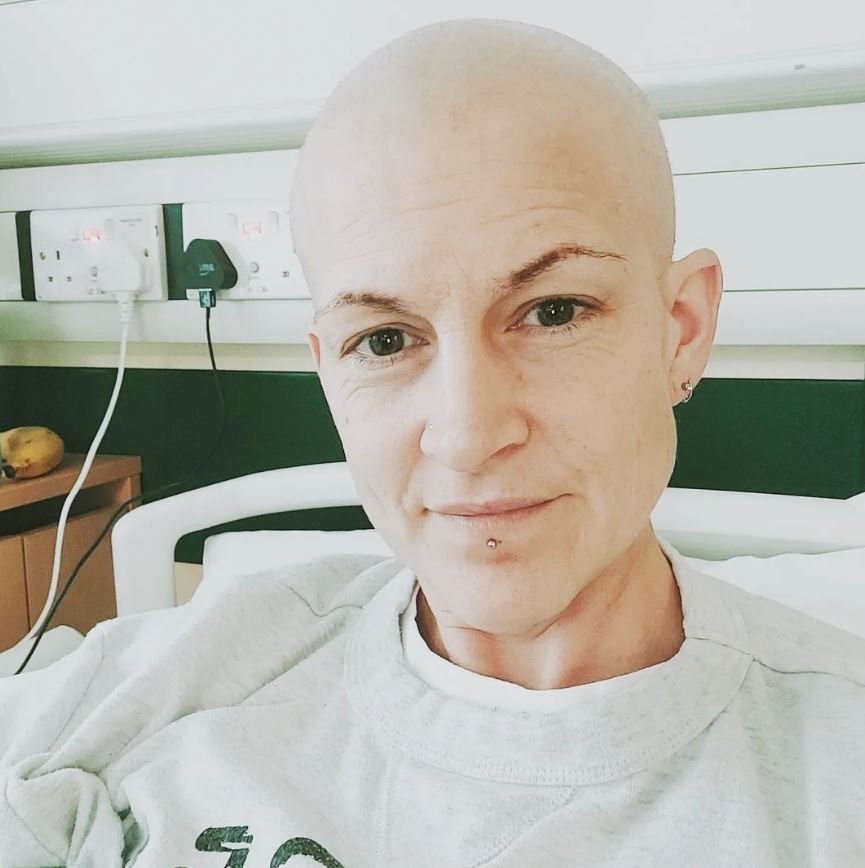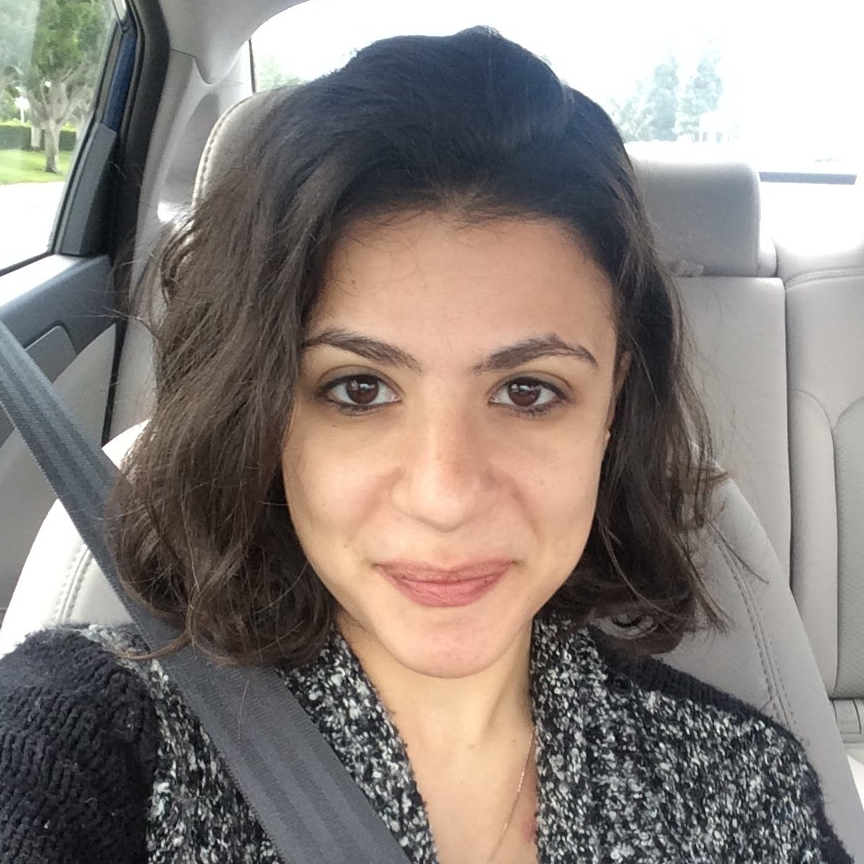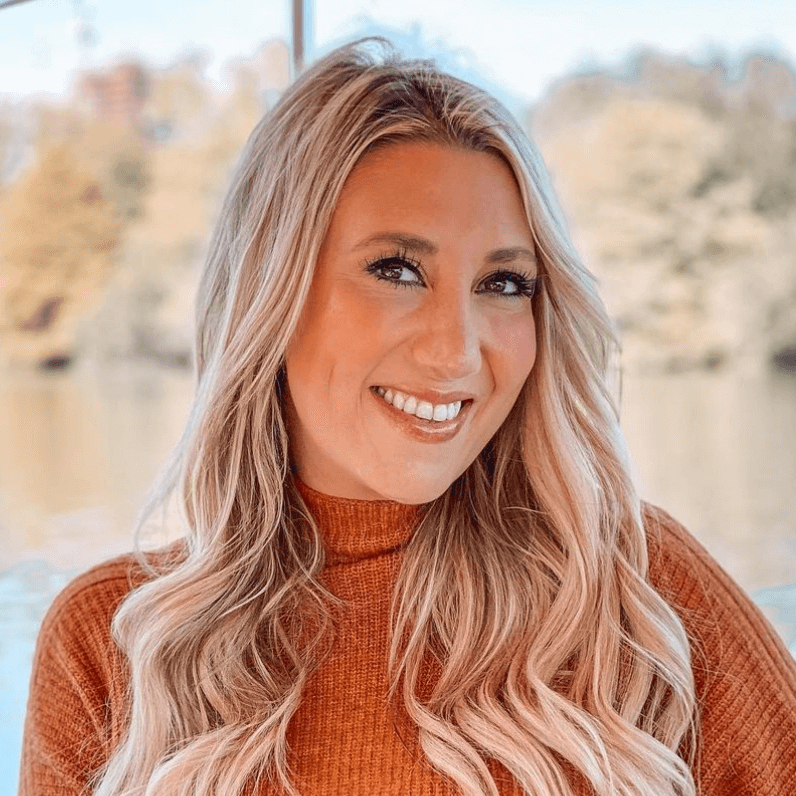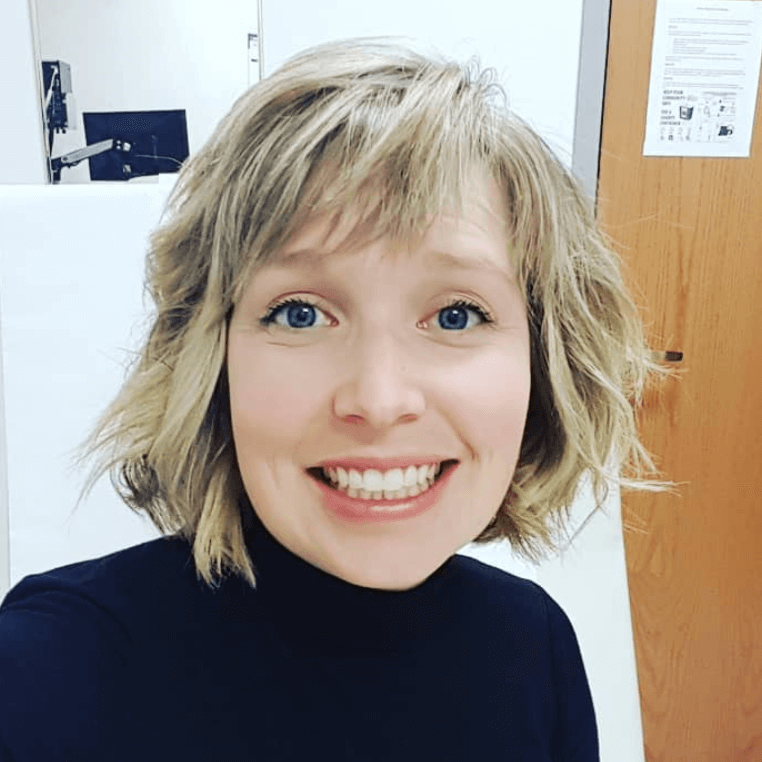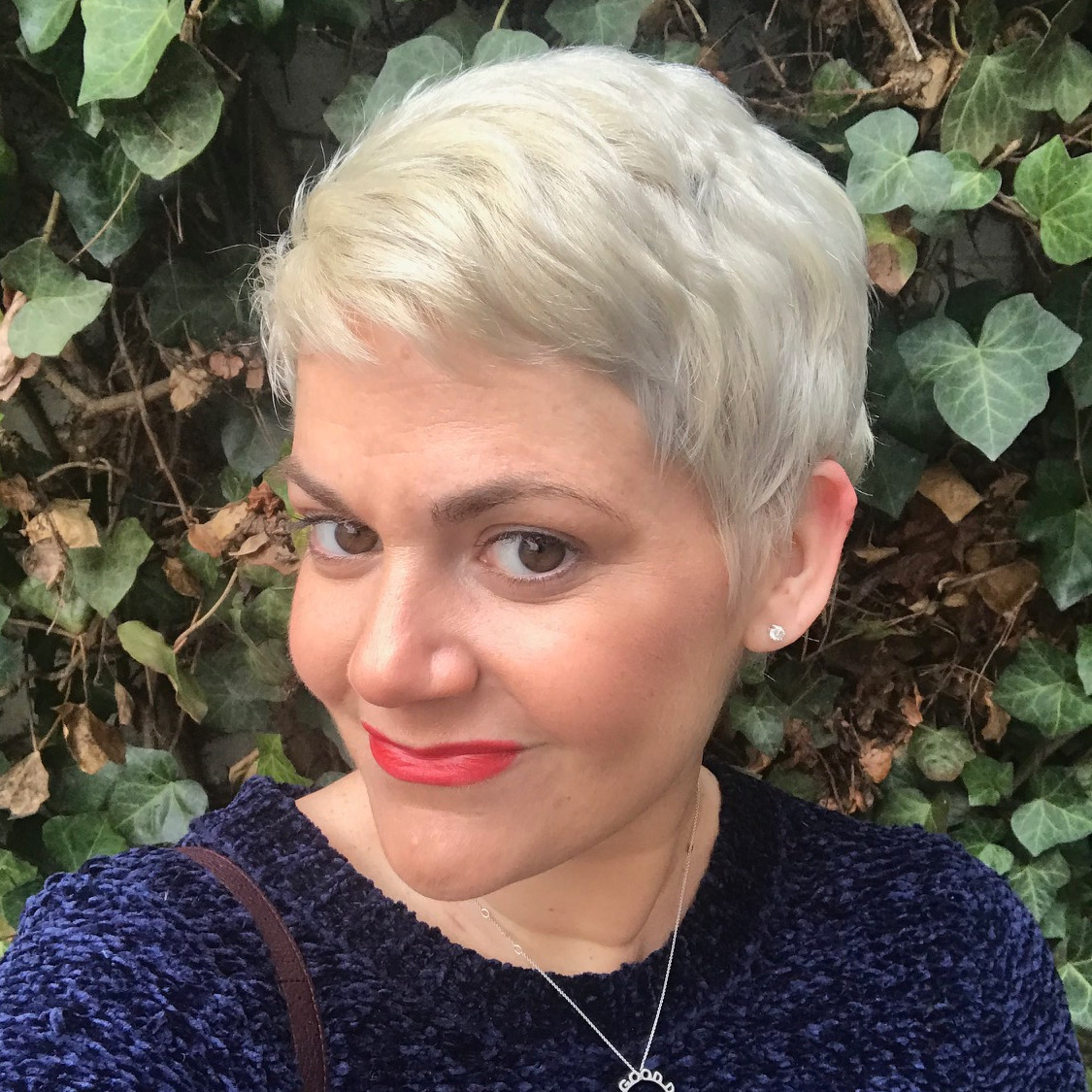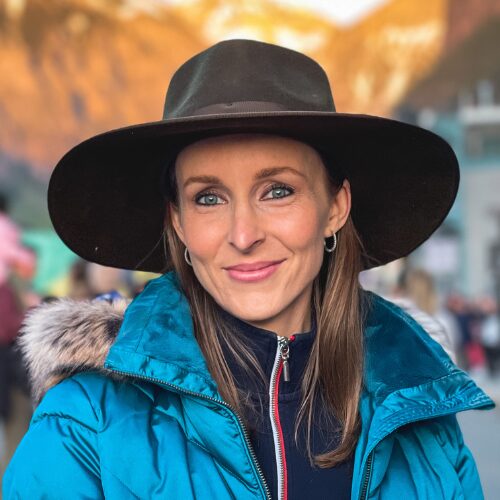Leanne’s Stage 4 Cervical Cancer Story
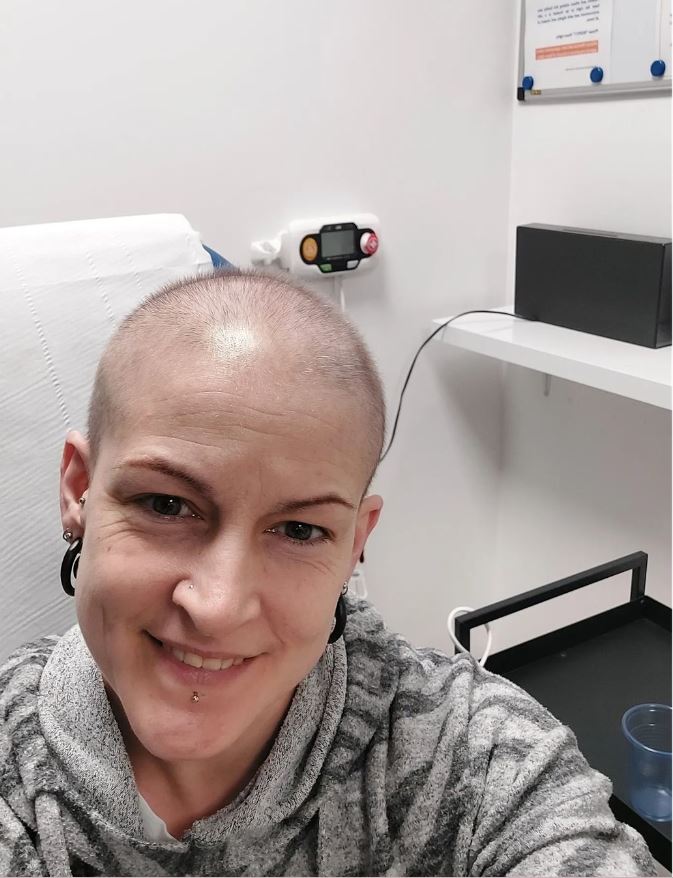
Leanne was a mom of four when she started experiencing irregular periods and fatigue. An examination and biopsy revealed she had cervical cancer.
She went through successful treatment, but scans later found cancer had spread to other spots in her body. She was then diagnosed with stage 4 metastatic cancer.
Leanne discusses processing the diagnoses, going through treatment again, parenting with cancer, and finding support.
Thank you for sharing your story, Leanne!
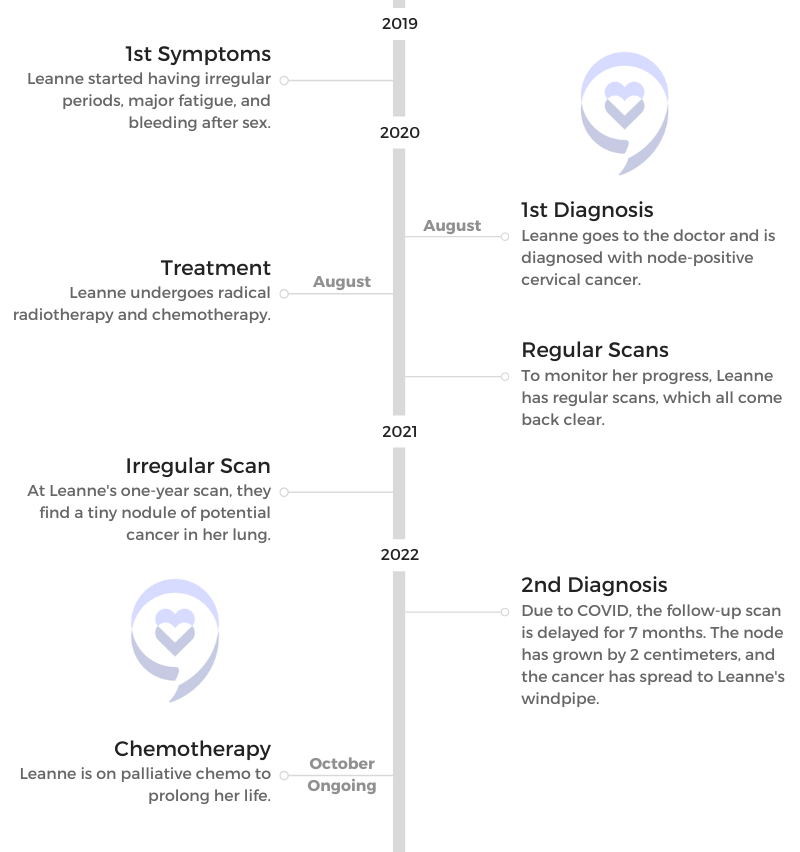
- Name: Leanne B.
- 1st Diagnosis (DX): Cervical cancer
- 1st Symptoms:
- Irregular periods
- Bleeding after sex
- Pain
- Fatigue
- Age at DX:
- Tests for DX:
- Biopsy
- Treatment:
- Radiotherapy
- Chemotherapy
- Brachytherapy
- 1st Symptoms:
- 2nd DX: Stage 4 metastatic
- Age at DX:
- Symptoms:
- Growth in lung
- Tests for DX:
- Scan
- Treatment:
- Chemotherapy
- Carboplatin
- Paclitaxel
- Antibody
- Chemotherapy
This interview has been edited for clarity. This is not medical advice. Consult your healthcare provider for treatment decisions.
- Introduction to Leanne
- 1st symptoms
- 2nd diagnosis
- What was the timeline from symptoms to diagnosis?
- How did you process the diagnosis?
- How did you tell your loved ones?
- Current treatment plan
- Drugs in chemo regimen
- Side effects from chemotherapy
- How do you get out of that feeling of doom?
- How have you stayed so positive?
- Parenting with cancer
- How did you explain everything to your children?
- Processing your cancer being “not curable”
- Do you have hope for future research and treatment?
- Why is this treatment your only option?
- Advice for caregivers and patients
- How did you find help and support?
- Do you live more in the moment now?
Introduction to Leanne
I’m Leanne. I’m 37. I live in the UK. I’ve got 4 children, 12, 10, 8 now (his birthday was Sunday), and 5. At the moment, I’m a stay-at-home mom. Going through chemo, as you can see. Before that I was a window cleaner. I cleaned windows. [For] hobbies, I just like walking, health, fitness, healthy eating. I’m a vegan as well.
1st symptoms
Basically, I had a smear test when I was 22, which in the UK is actually under the age limit to have it. It happened by fluke that they did the smear test for me. Then when I’d had it done, they said, “We shouldn’t have had it done. You’re not 25.”
Everything was clear on that. That was fine, and then I didn’t have one after that. I had my youngest, but I didn’t have my other children. I had 3 more children.
We got to 2019, and I started having irregular periods, bleeding after sex, and the pain and just not really feeling myself. Tiredness as well. I had severe tiredness. I had four children, but I’d fall asleep in the bath. Real fatigue, really bad.
In the end, I went to the doctor. She was a very young junior doctor, and I remember the look on her face after she did the examination. She looked at me and said, “I think you need to see someone else.”
At that point, I knew. I just knew what it was. I went in and had a proper examination, and then I had a biopsy done. They said, “Yeah, it’s definitely cancer. We’re going to go ahead.”
They did radiotherapy and chemotherapy and brachytherapy, which was all successful. That was brilliant for cervical cancer. That was fine, and that was brilliant. Then we waited a year. We had a few scans. Everything was still fine.

2nd diagnosis
On the year scan, they found a little tiny dot in my lung, barely visible, and they said to wait a few months and see what happened. They waited 5 months, and by that point it had grown by 2 centimeters.
Then in the time it took to have another scan 2 months later, it spread to a node in my windpipe, and so I was diagnosed stage 4, incurable. At the moment, I’m having chemotherapy for that. Just chemotherapy at the moment. I’ve had 3 rounds, and on Monday I’ve got my scan to see if it’s working.
What was the timeline from symptoms to diagnosis?
The first symptom would have been probably in early 2019. I started to get the pain, the bleeding, the fatigue quite badly. Before that, there was no problem at all. I had 4 children.
I still felt generally quite healthy, but it was the fatigue that really made me worried. That was sort of early 2019, and now obviously we’re in January 2023. 4 years.
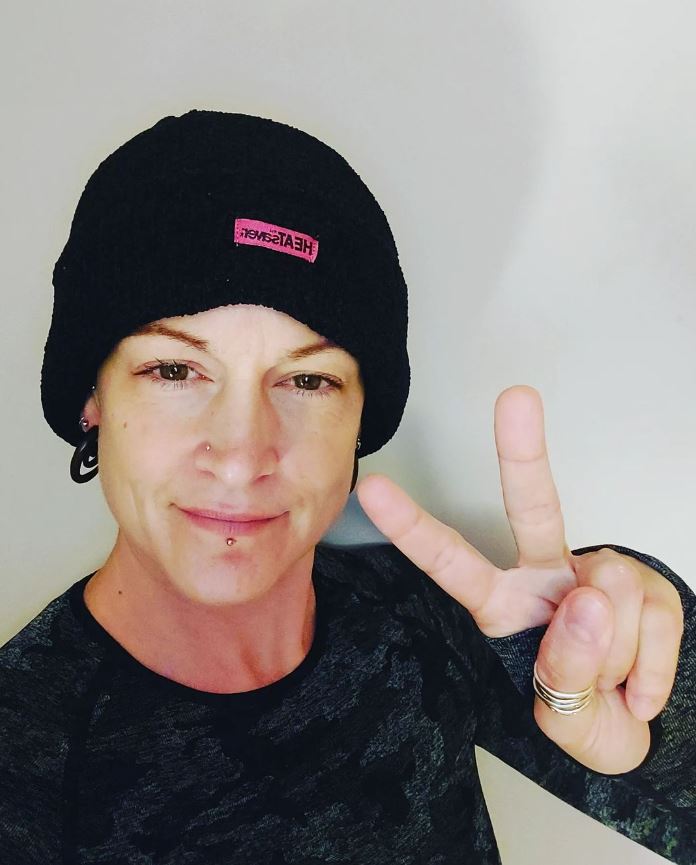
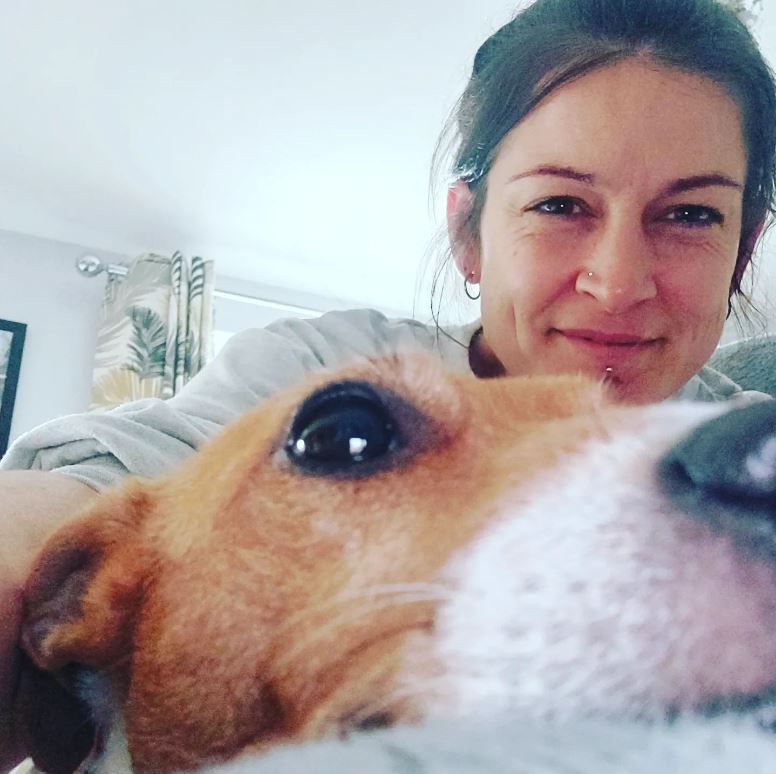
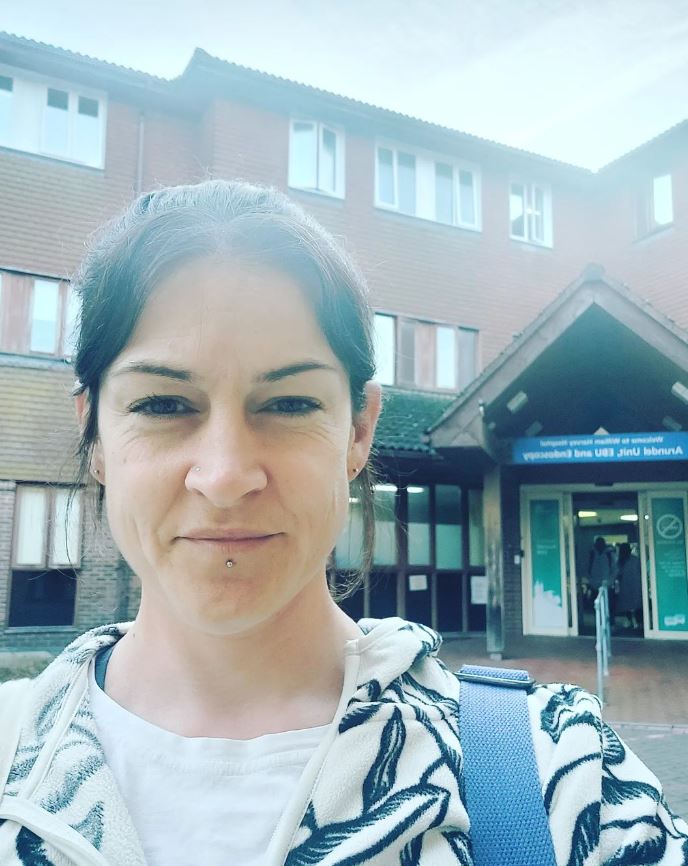
How did you process the diagnosis?
I sort of was kind of expecting it. The younger doctor, when I saw her face, I knew. I like to sort of take things for what they are. When they sort of come to me, I just sort of take them, process them. I was quite calm about it.
It was more telling other people. That’s what really worried me. Telling my mum and my dad, I thought about how I’d feel if that was my daughter. Friends and people that had lost people. It’s difficult. It brings up memories for them, and it’s just a very difficult process.
For me, I find that other people’s feelings and emotions are harder for me to cope with than my own, if that makes sense. I’m worried about how they’re coping with things. That was really difficult.
»MORE: Patients share how they processed a cancer diagnosis
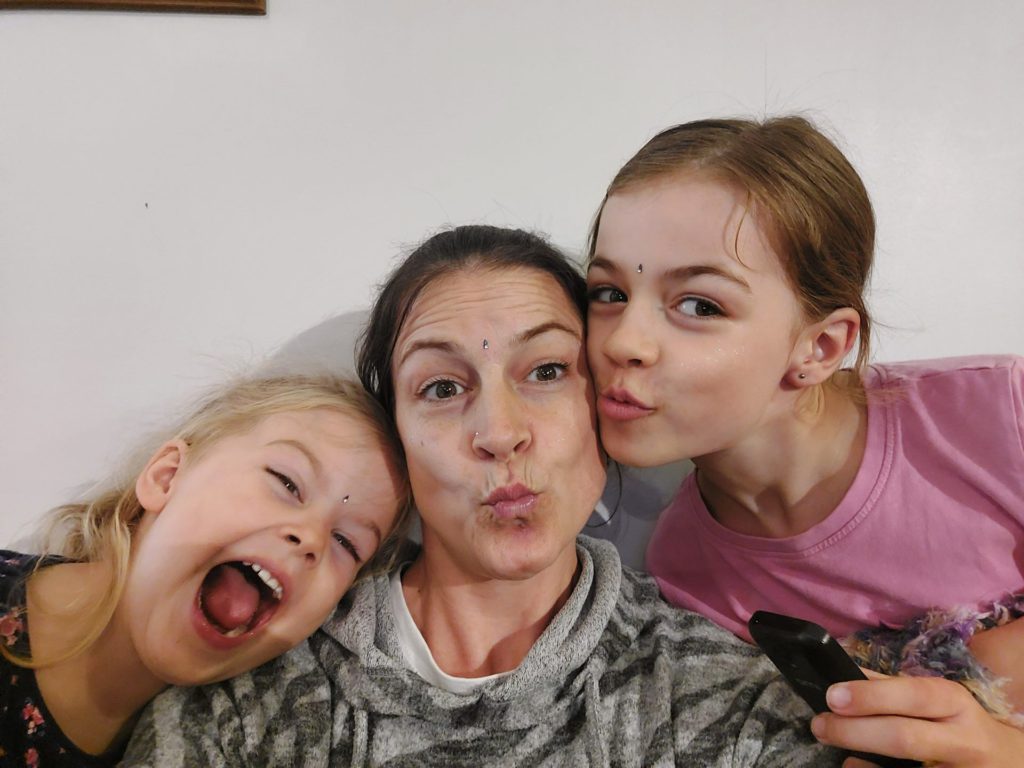
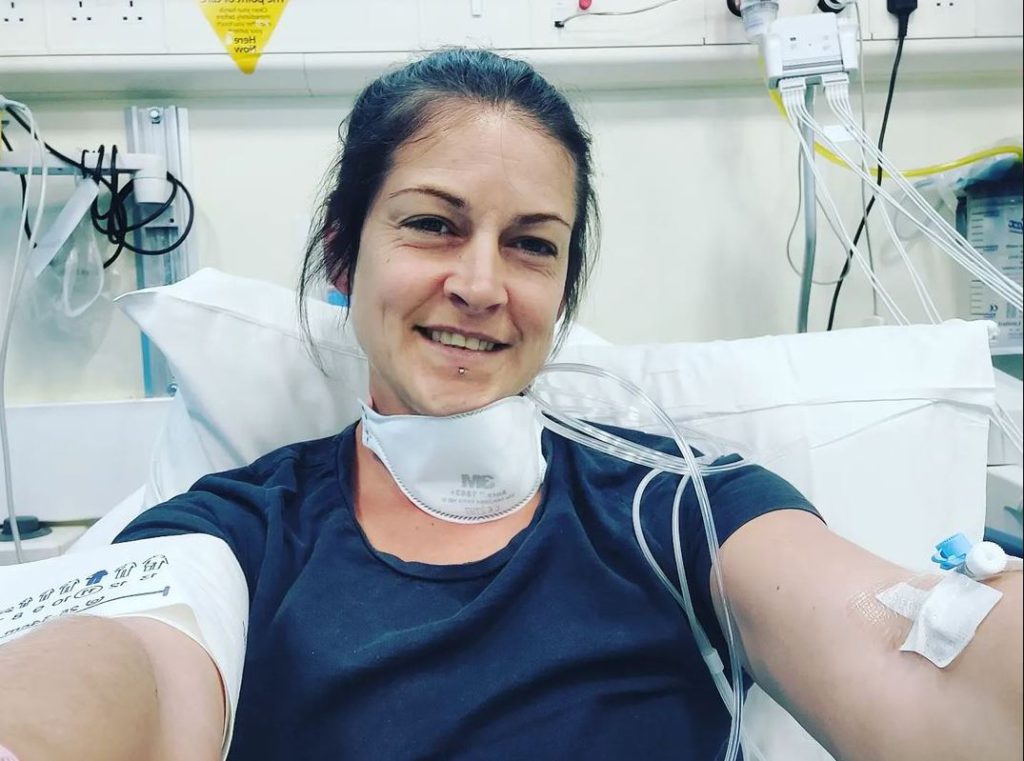
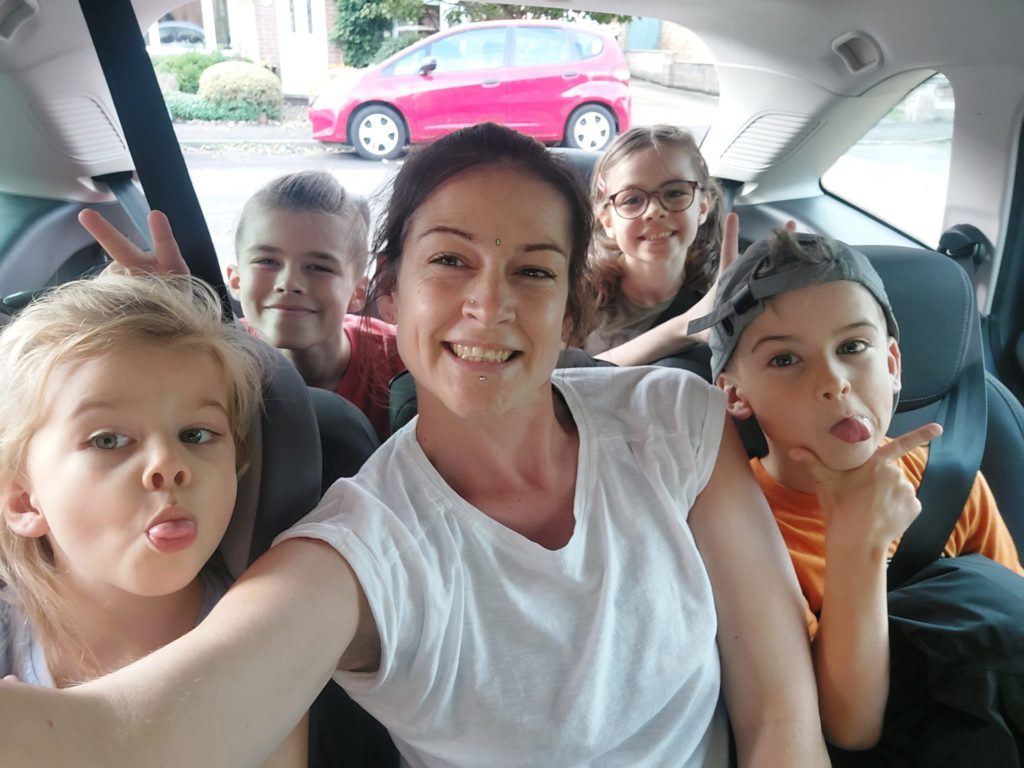
How did you tell your loved ones?
Really difficultly, because I just tried to reassure them what I’d been told by the doctor. First off, whenever I’m told something, I like to give people the facts, the information that I’ve been given straight from the doctor.
Don’t look things up on Google. Don’t look at statistics. Everyone’s journey is going to be different. People watching this and seeing me — and maybe they’ve been diagnosed with cervical cancer — don’t look at me and think, “Oh my God, that’s going to happen to me,” because it doesn’t mean that at all.
There’s different treatments for different people. There’s different things coming out, immunotherapies and things. When you talk to people, just try to reassure them and remember not to go out and try and look for your own information. Just try and stay positive. Try and piece things together for yourself and not sort of go out looking for information other places.
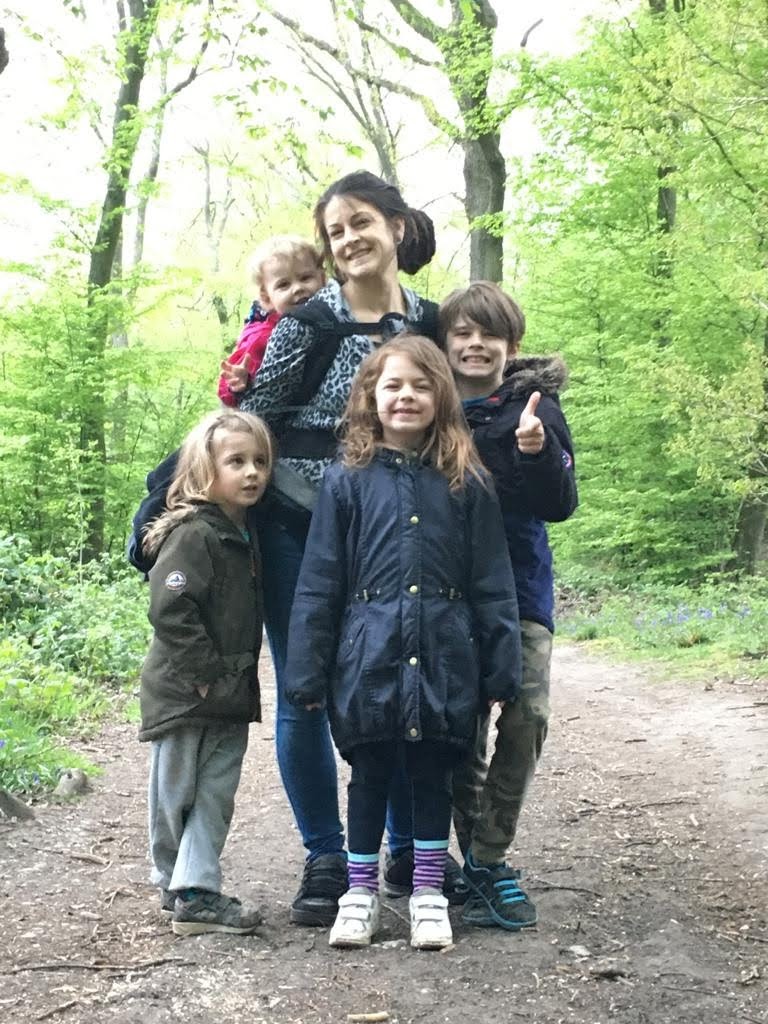
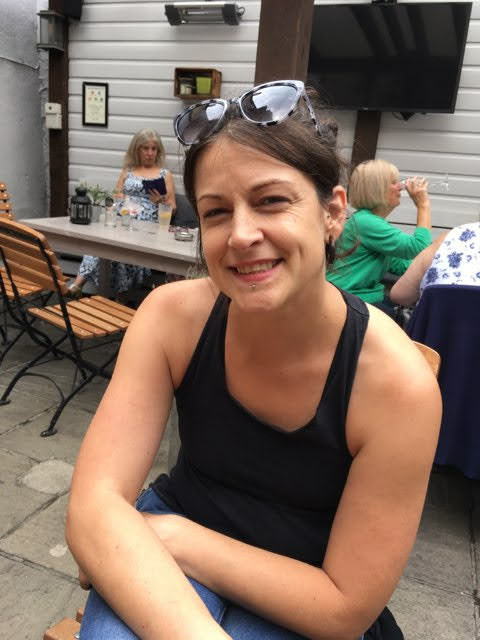

Current treatment plan
I started my chemo in October, and it was the day before my birthday. I felt fine on my birthday, which was brilliant.
Then it’s meant to be every 3 weeks, so 3 weeks later I had a blood test for pre-chemo. My neutrophils were low, so they postponed it a week. I had it the week later, and then they postponed it again for the next one by 5 weeks. In that time, I ended up in hospital with neutropenic sepsis.
I had my third one last Monday, which means my scan can now go ahead. Halfway through, my consultant said he wanted to check my lungs and everything and see what happened. I think it’s going to be a full-body PET-CT to see if it’s spread anywhere else as well.
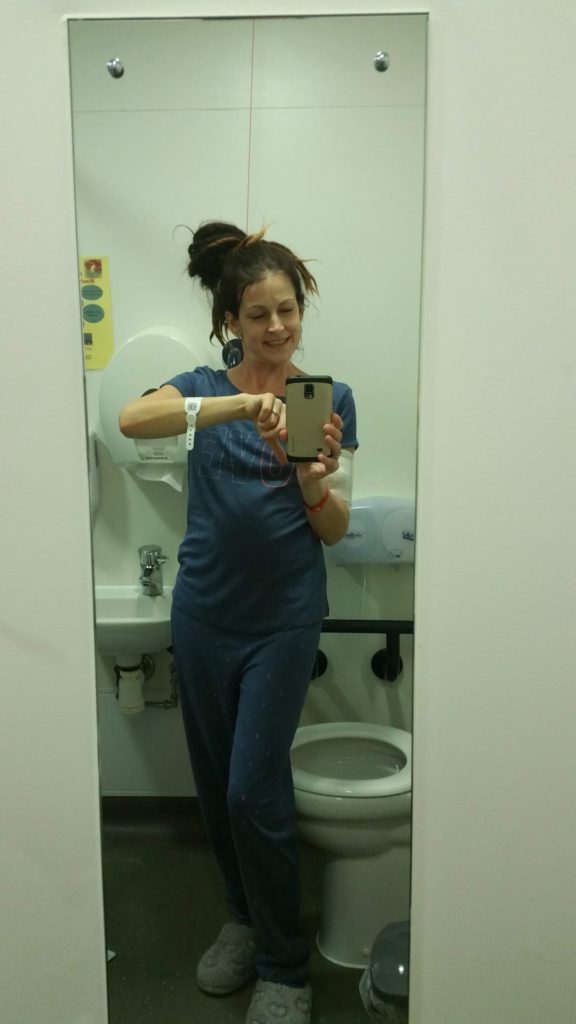
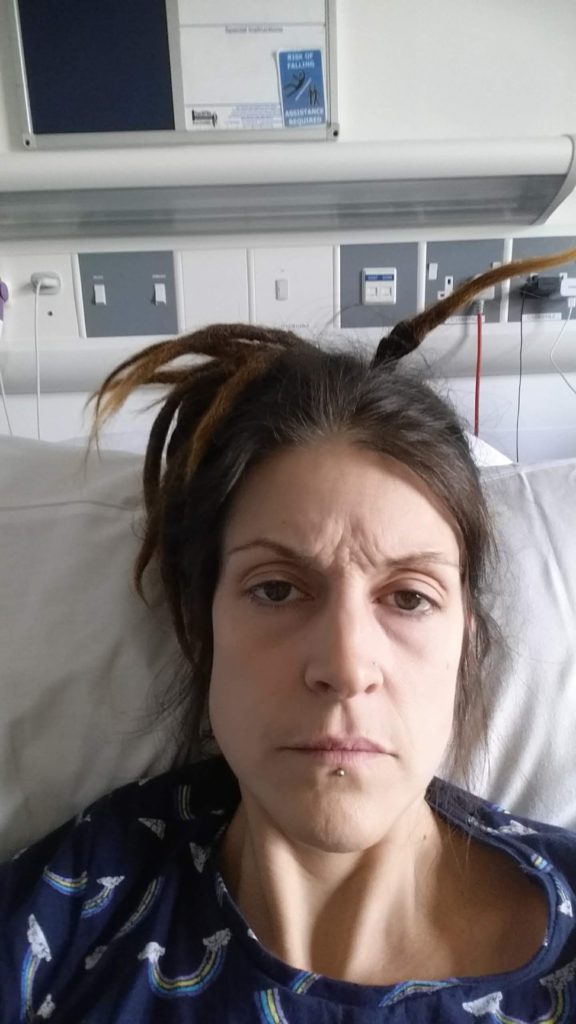
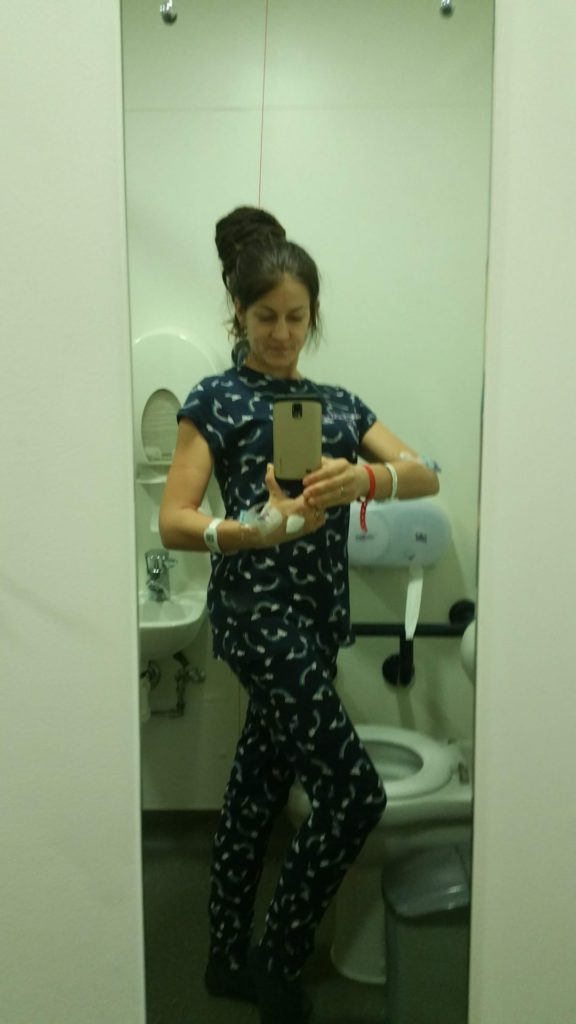
Drugs in chemo regimen
I know one’s called carboplatin. The one that always gets me is [paclitaxel], I think it’s called. There is also an antibody as well they put in there, but I don’t know the name of that. That’s the 3 combined things I’m having.
As far as I know, they’re widely used. I’m finding it okay at the moment, really. As you can see, I actually had so long off from the chemo that my hair started growing back, so I’ve got little fluffy bits.
Side effects from chemotherapy
So far, for me, there’s something that wasn’t really described to me — which I’ve talked to other people about, and they said that they have felt it, too — is what I’ve called chemo doom. It does make it sound worse than it is.
There’s this feeling like you’ve been poisoned, which I suppose is what has happened in a way. But it’s kind of this feeling of impending doom. Especially when you’re not feeling well, and you’re sort of laying in bed on your own. That’s what I struggle with, this feeling of emptiness and loneliness.
I’m quite a positive, happy person, and I find that really hard. But thankfully it doesn’t last that long. It only lasts a couple of days. You can sort of get through that and move on.
That feeling of doom. That’s not nice. Everything else I’ve not really struggled with. My hair loss wasn’t too bad. Sickness and all the rashes and diarrhea and things hasn’t been too bad for me thankfully.
»MORE: Cancer patients share their treatment side effects
How do you get out of that feeling of doom?
The chemo I had years ago, I didn’t have any of this. This is quite intense, what I’m having right now, in comparison. When it first happened, I really struggled, and I cried. That was even worse for me, looking at myself, realizing that I was that broken by it.
So I was scared the next time, but when it came the next time, I just thought to myself, “You got through it last time. It might not be as intense. It might be longer, but whatever happens, it will end, and it will go, and it will stop, and then you’ll feel better again.”
And it did. Then the last time it happened, and I got through it. Just keep thinking I’ve only got 3 more cycles. As long as my results come back and it’s actually reducing it, I’ve got 3 more cycles left, and we’re good. We’re done.
How have you stayed so positive?
I follow a bit of Buddhist practices. One thing I found really helpful is social media, which I wasn’t big on social media before, but that has been my saving grace. I’ve met so many amazing people.
I’m getting messages from people all over the world, just sending me messages and saying, “How were you today? How are you getting on? You had chemo the other day. Are you okay? How are you feeling?” People genuinely really wanting to know how I am.
I try and do that for other people, too. There’s such a beautiful community of people that just really care about each other, and they really want us all to be okay. I want us all to know we’re not alone. You can’t beat that. That has been amazing. Go out there and find people, find your tribe, get with them. That is what everyone should do.
Parenting with cancer
That has been really, really tough. I’ve got 4 children, like I said. They’re all different ages, and they’re all very different people, very different, very individual. They’ve all struggled in their own ways.
One of my sons, the one that just turned 8, has really been struggling at school. He’s been showing a lot of aggression. The school has been amazing. They’ve been so supportive. My eldest daughter, she’s been very quiet, which has been very worrying. She hasn’t really said much about it.
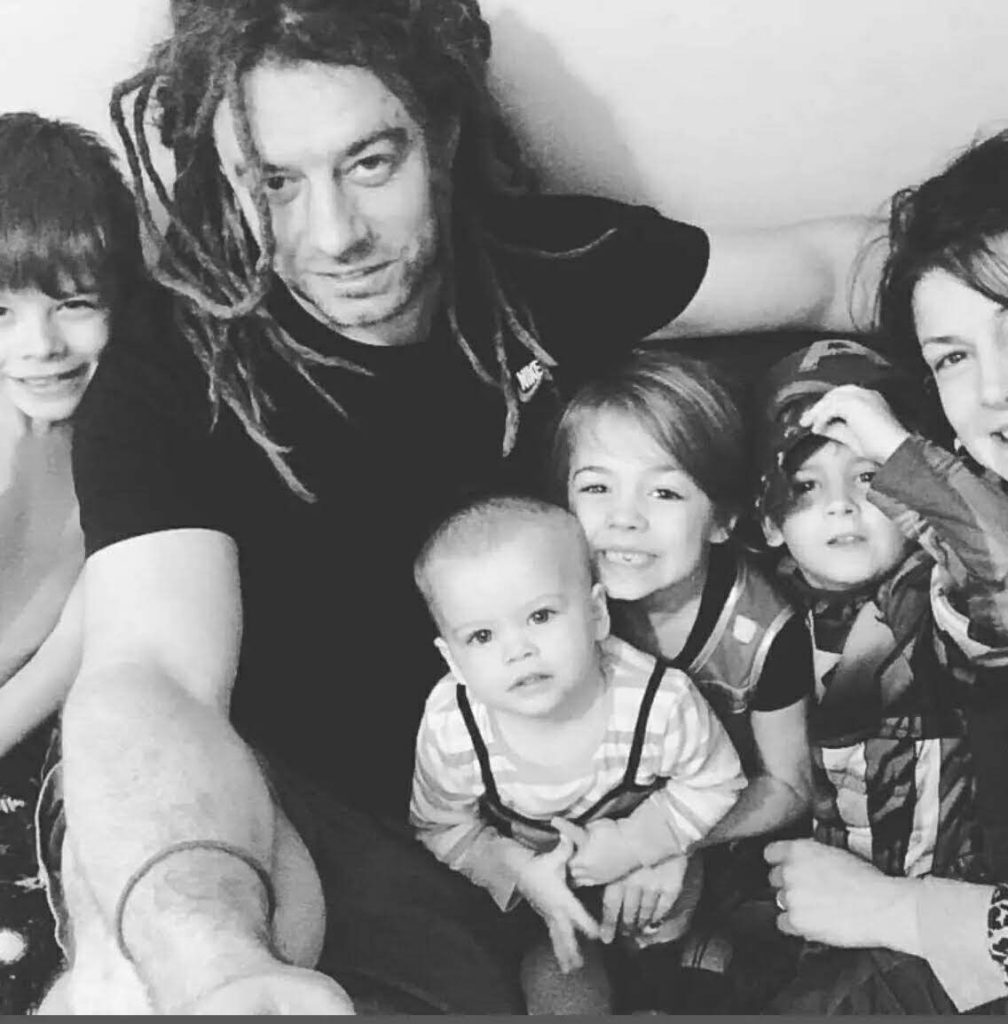
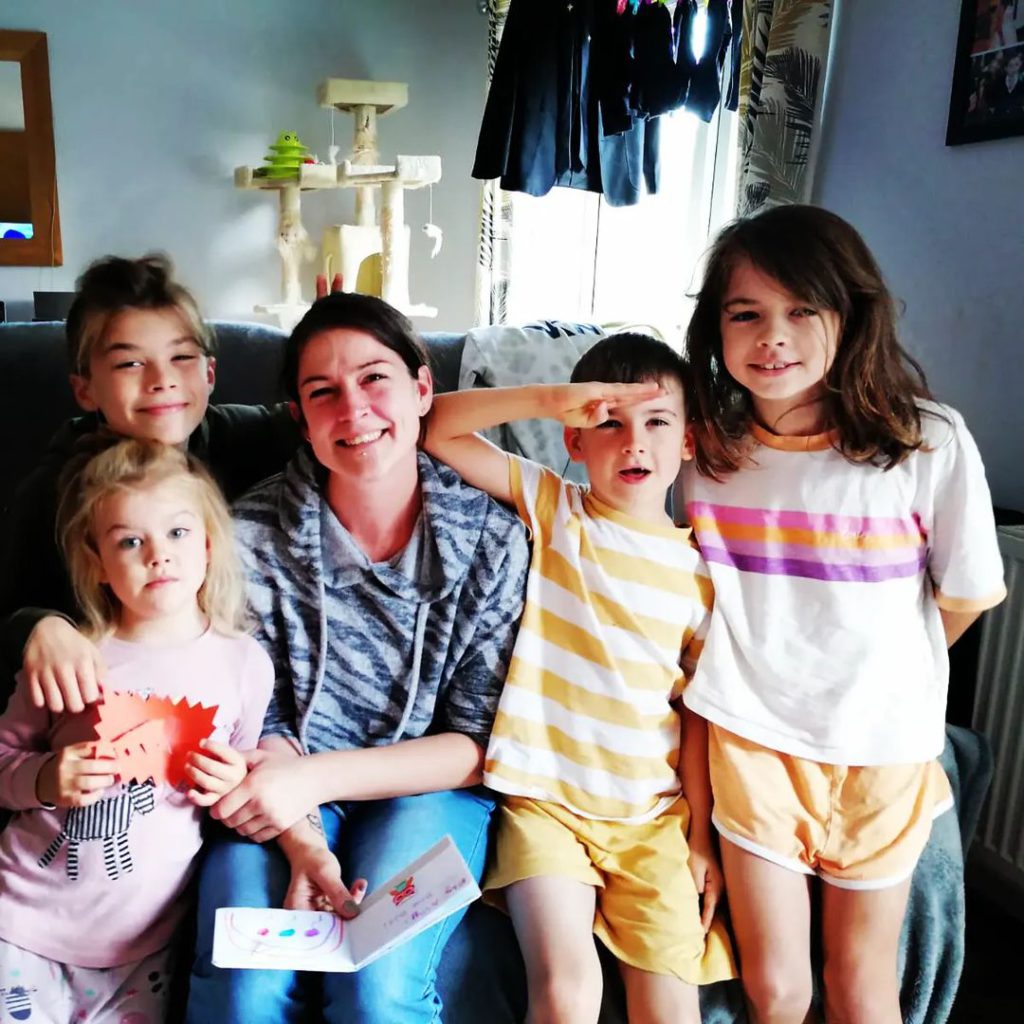
I try to be honest and open as much as I can. I try to explain things as thoroughly as I can and answer their questions patiently. Some days it’s really hard, and I don’t really want to talk about it, but you have to help them because they don’t understand.
It’s really difficult for kids to see things like how adults do. It’s our job as parents, even when we’re going through tough times, to be there for them. That is what we need to do for them. So just be patient with them like you are with yourself, and just work with them, sit with them, chat with them.
There’s books out there to help. Reach out to other people. There’s people that will help you if you don’t feel you can do it just for yourself. Your schools. Go out and find people to help you because there’s people out there that could do it.
»MORE: Parents describe how they handled cancer with their kids
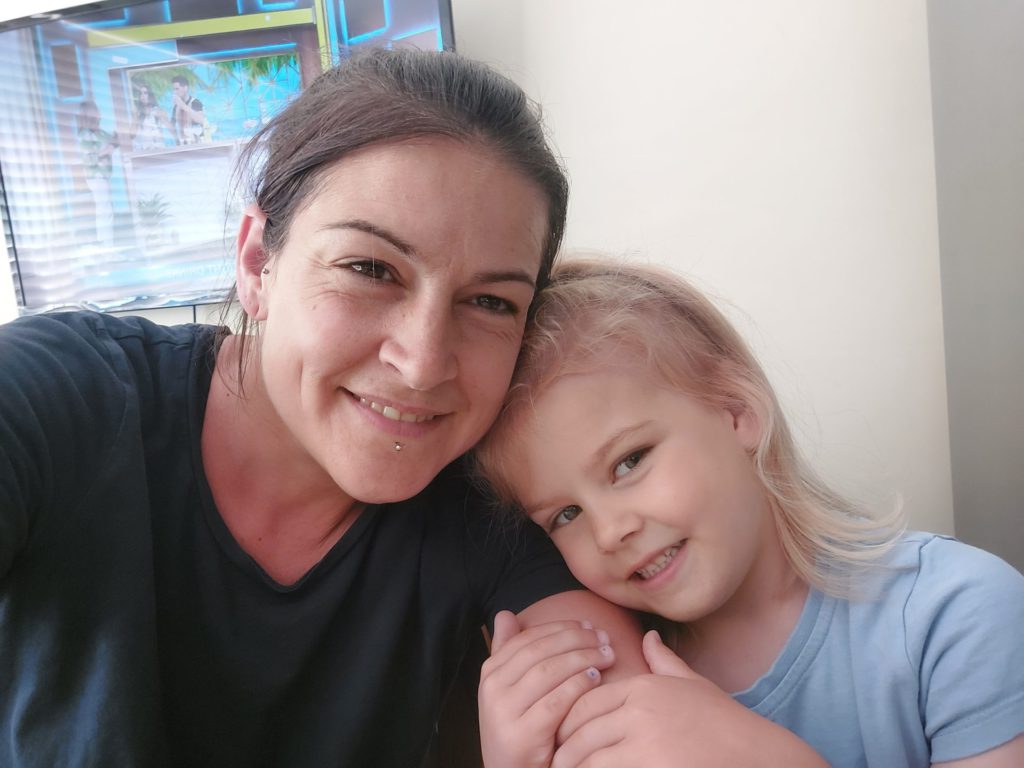
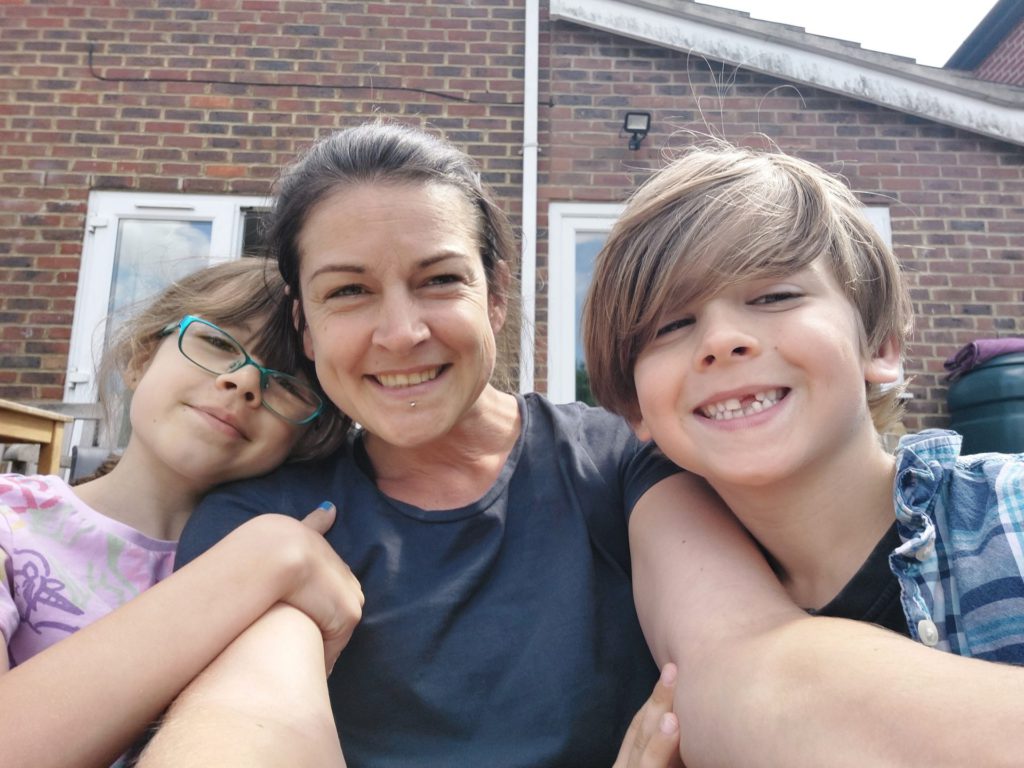
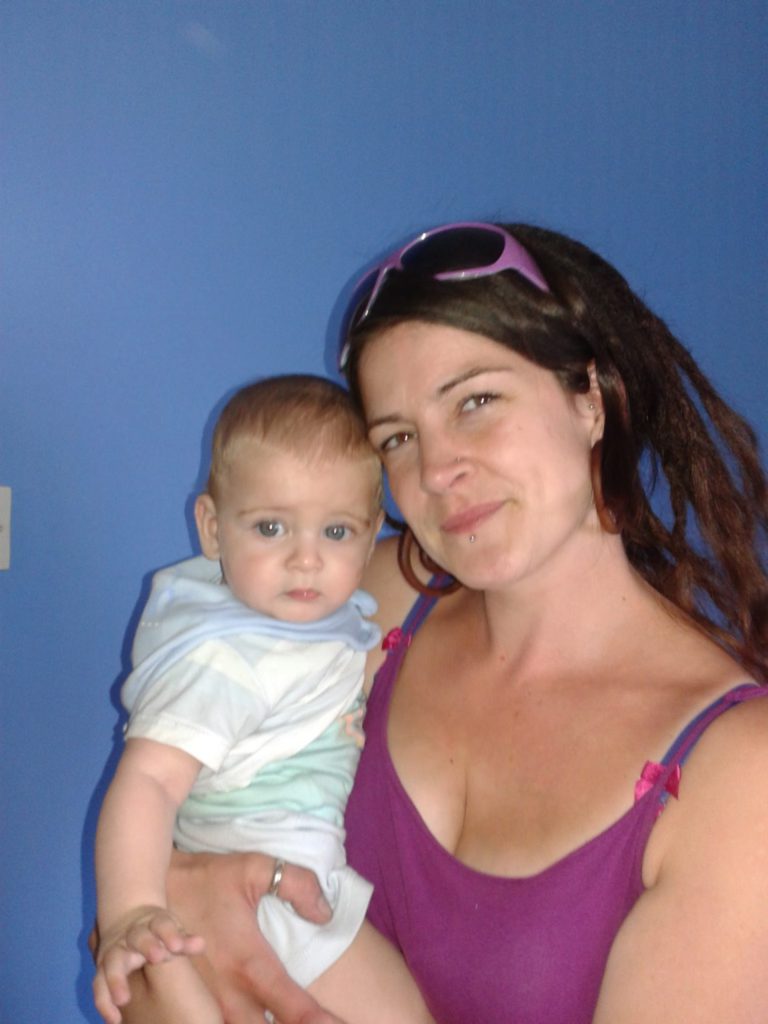
How did you explain everything to your children?
Like I said, because of the ages, I try to explain to them differently. Obviously, if they’re all together and one of them asked me a question, I’m not going to shoo one of them away because they will understand what they understand from what I say.
The hardest question, quite obviously, is the obvious one: Are you going to die? Yeah, I am. I’m going to die. Like I said to my son the other day, I could walk out down the road and get hit by a bus. It doesn’t necessarily mean it’s imminent.
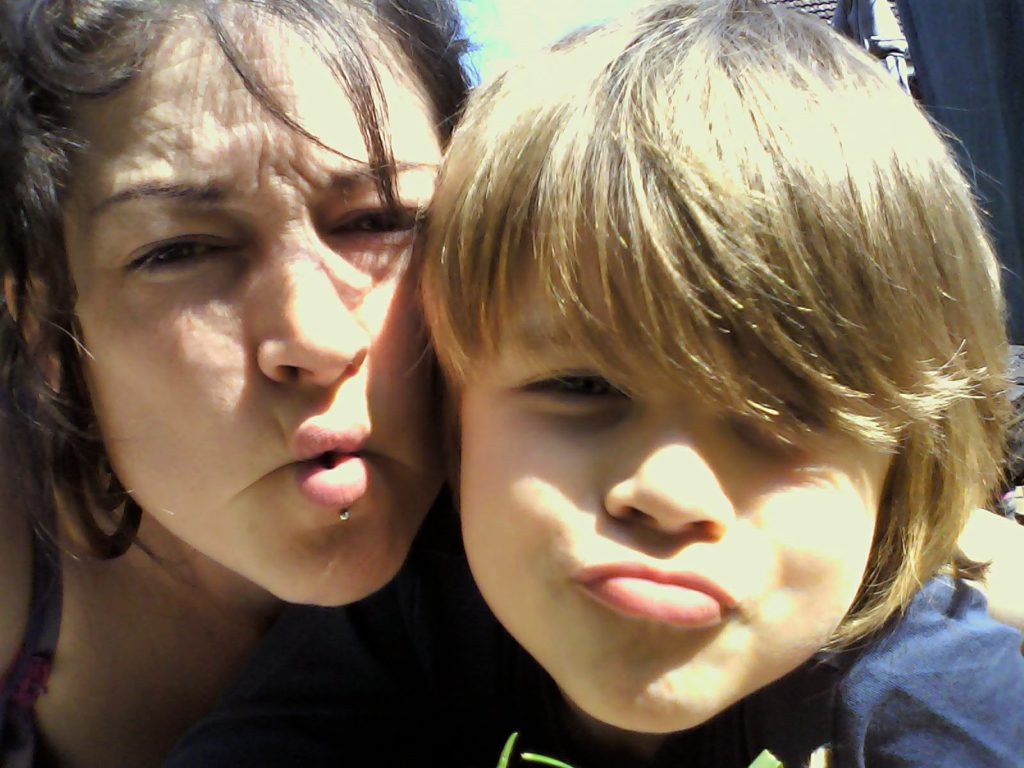
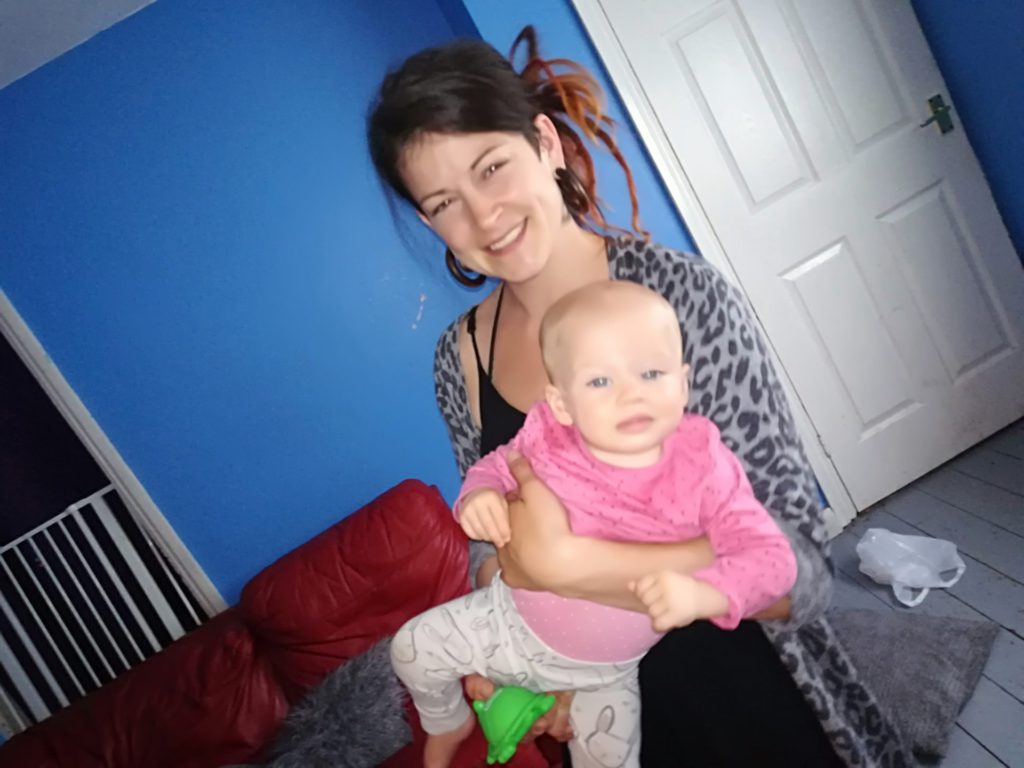

It’s a hard thing to grasp, and it was a difficult thing for me to get my head round. They want to know how I feel during chemo and all the sort of things that everyone else asks me. What’s going to happen to them when I’m gone?
There’s questions that they’ve asked that have been really, really tough and questions that actually sometimes it’s okay to just say, “I don’t know the answer. I can’t answer you, but I’m here for you. I can hug you, but I can’t give you that answer right now.” There’s been some tough ones. There’ve been tears.
Processing your cancer being “not curable”
That was hard. That was really hard. It wasn’t something that I expected, to be honest, because obviously being positive, I like to hear positive things. My consultant said, “It’s not curable. It’s treatable, but not curable.”
But in that same breath, he also said that he’s going to try this bout of chemo, and if this doesn’t work, that is it. There is nothing else he can do. That sort of took my breath away a bit, which was really hard.
I just have to look forward. I take each stage like a little step. I’ve got my scan next Monday. Then I see my consultant. He gives me the results, and from there, whatever he says, we go down that path, and then after that we decide what we’re going to do.
If it means that there is no more treatment, then I have to try and think of what I’m going to do with that time, however long that is, and make the most of it.
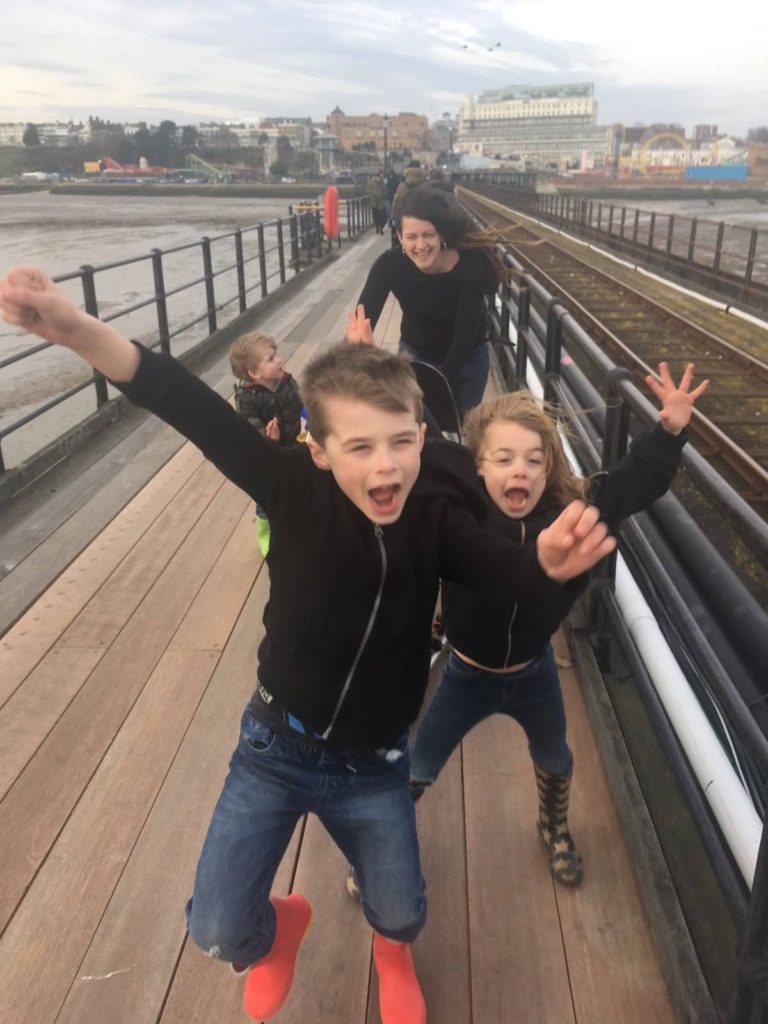
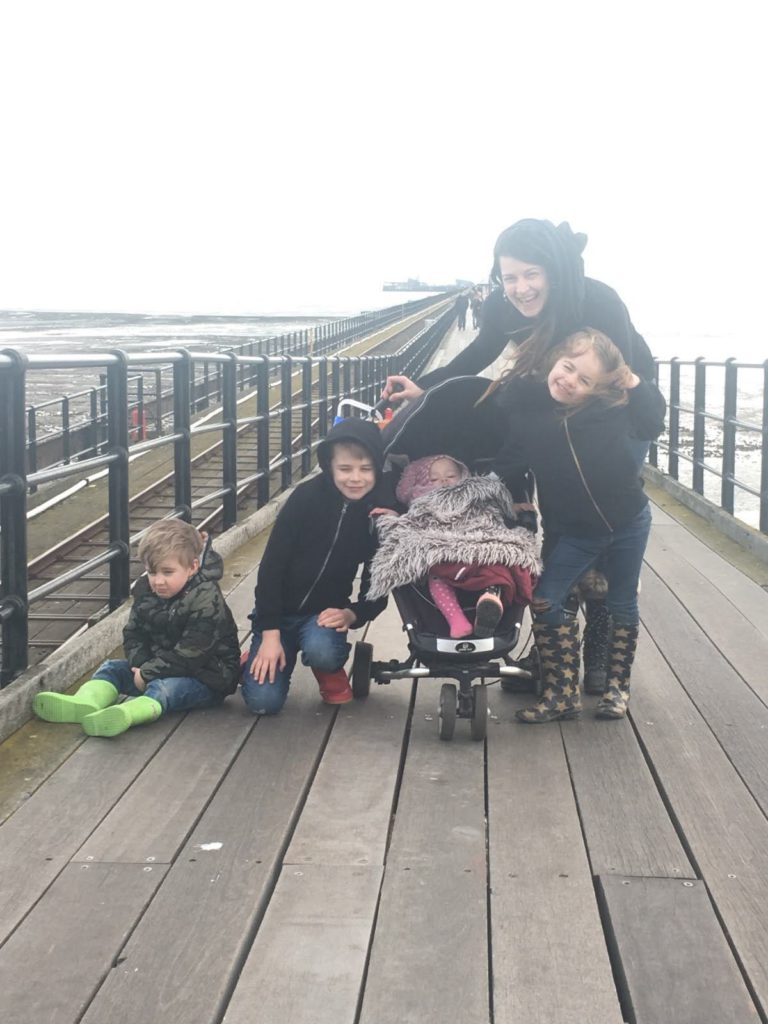

Do you have hope for future research and treatment?
That would be brilliant. That would be amazing. There was actually an immunotherapy that had been only recently trialed, and I was put forward for that, but when my bloods came back, I wasn’t actually suitable for that at the time.
There might be something that comes up. They might come back to me and say, “We’ve got this new drug or this new tablet, and we want to try it.” Obviously, if there’s nothing else I can try, then yeah, sure. I’m up for trying anything and seeing how that goes.
There’s so many people going through these things, and in the past couple of weeks I’ve had a few friends come to me saying they’re having biopsies on their breasts, and they’ve had lumps here or things or worries. It just seems to be such a big thing now.
It’s just so hard to watch so much suffering with this horrible thing that’s happening. It’s really tough, because everyone deals with it so differently. Just because I’m positive about it doesn’t make it [easy]. It’s just such a really hard thing. It’s really hard.
Why is this treatment your only option?
His words were he wouldn’t put me through any more chemo after that. I’m assuming that that is because it is grueling. It’s not nice, and obviously, I couldn’t be on that for life anyway. In all honesty, he didn’t explain it fully.
He did say that if it had reduced enough, he could try radiotherapy, localized radiotherapy, which could help. He basically said once this load of chemo was done, if it didn’t work, he wouldn’t be able to do anything else.
I’ve had the 3 loads of chemo, so I’m halfway through the chemo treatment. This coming Monday, I have my PET-CT scan. With that, he’ll see if it’s done anything, if it’s reduced, or if it’s spread. Then he will decide from there what we’re going to do.
Advice for caregivers and patients
Don’t give up. Don’t let things get you down. You can have days where you don’t feel right and you feel sad, and there’s nothing wrong with that. You don’t have to be overly positive just to make yourself positive for other people.
If that’s not your thing and you’re not feeling that way, let it out. Just be however you feel. Let those feelings happen, but don’t give up hope. Also, go and find your tribe. Like I said, go out and find people.
There’s social media. There’s support groups, physical support groups. There are people out there who can help you that genuinely want to make everyone feel that they’ve got someone. You can talk to someone.
They can do all sorts [of things] for you. If you’ve got struggles with money, you’ve got struggles with childcare, you’ve got struggles with sorting wigs, or anything you want help with, they’re there to help you. So go and find them, and it will change your whole perspective on what’s happening.
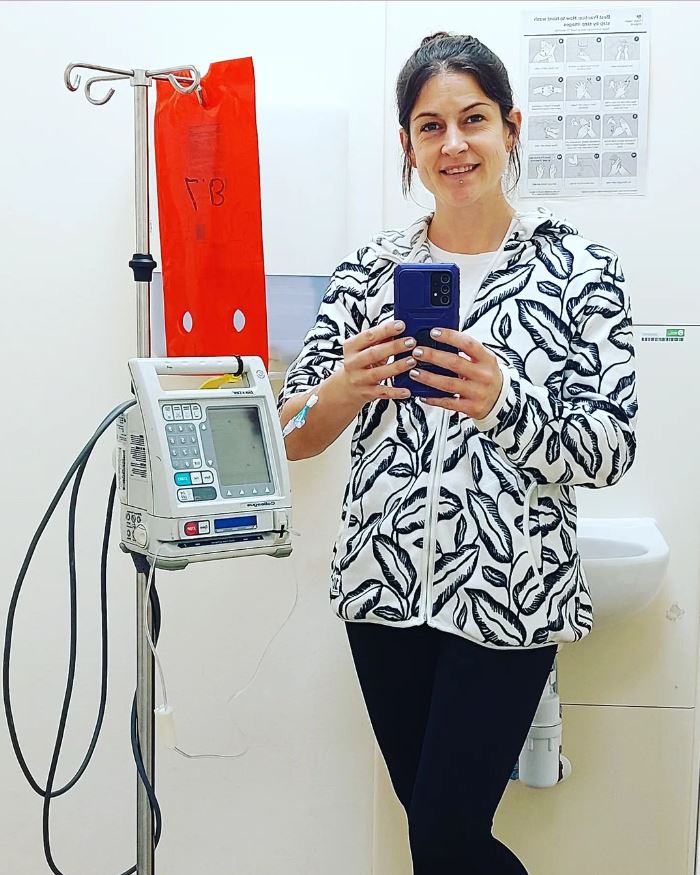
How did you find help and support?
Mine has been online mainly. I had a few other things going on in my life at the time, so I actually recently moved to a new area. I was making new friends anyway, and my kids just started a new school.
Online was my thing. I thought I’d start a little Instagram, so I started my Instagram, which has been really good, and I’ve sort of networked with people, which has been amazing.
I started a YouTube, where I’ve been sharing my thing on there so people can see what’s happening. I’m getting so much support there. I just went out online and found people there
It’s worldwide as well. There’s people all over the world, and it’s just so lovely to meet new people, see their experiences, and hear so many great stories of success, stories of people that have had. It’s just lovely. It’s amazing.
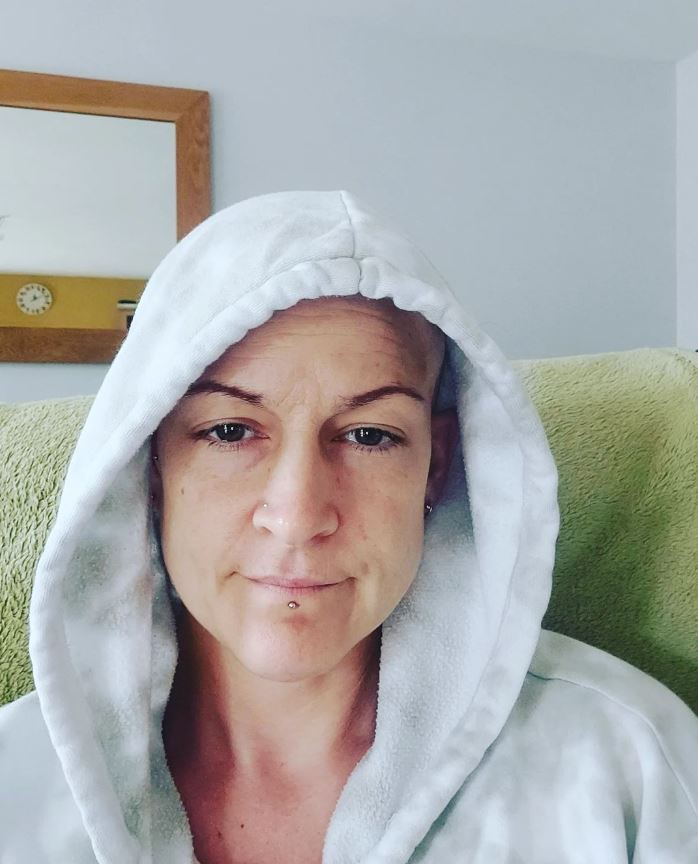

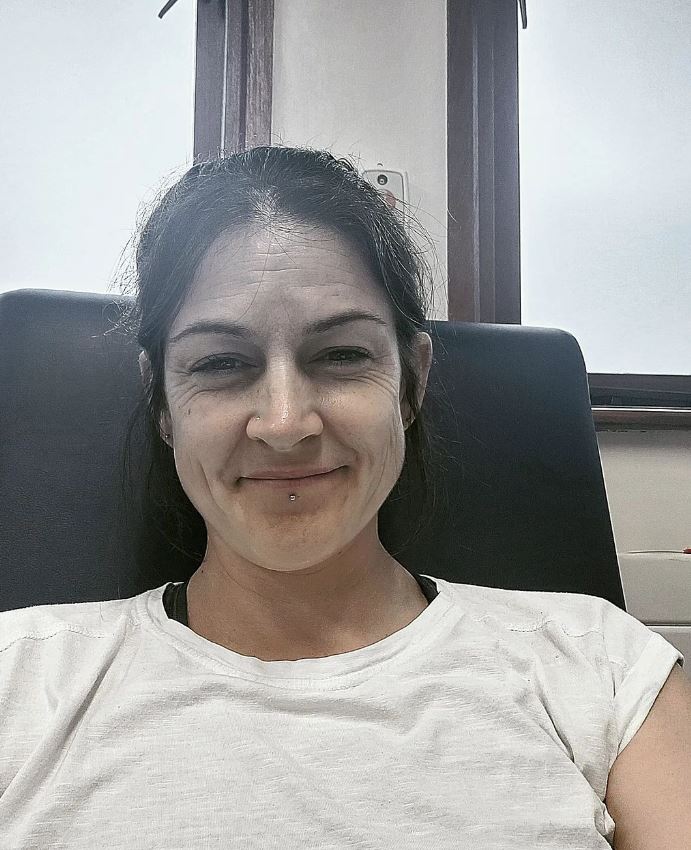
Just look after yourself. Just to take care of yourself and let yourself be taken care of as well. That’s something I’ve always struggled with, people taking care of me. I like to take care of other people, but sometimes you got to sit back and just let people take care of you and look after you and love you.
That is a very nourishing thing to do. Just take time for yourself. Let other people take time for you. Just take each day as it comes, but also live in the moment. Go do it. If you think, “I should have phoned that friend I haven’t spoken to for ages,” phone them.
If you think, “I wish I’d gone on that weekend away,” go on that weekend away. Try and make things happen for you. Do little things all the time to improve your situation and improve your mental health.
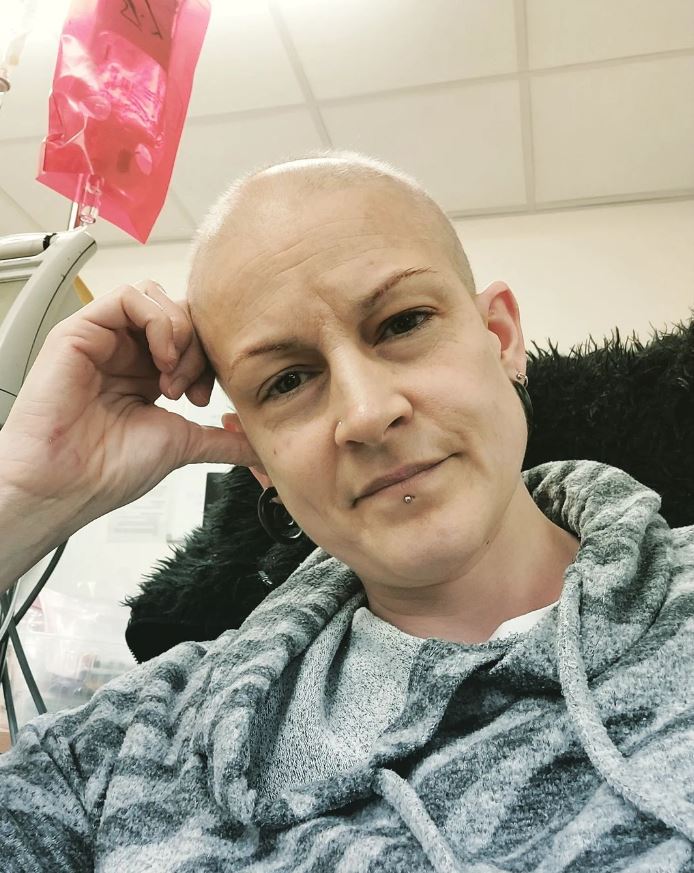
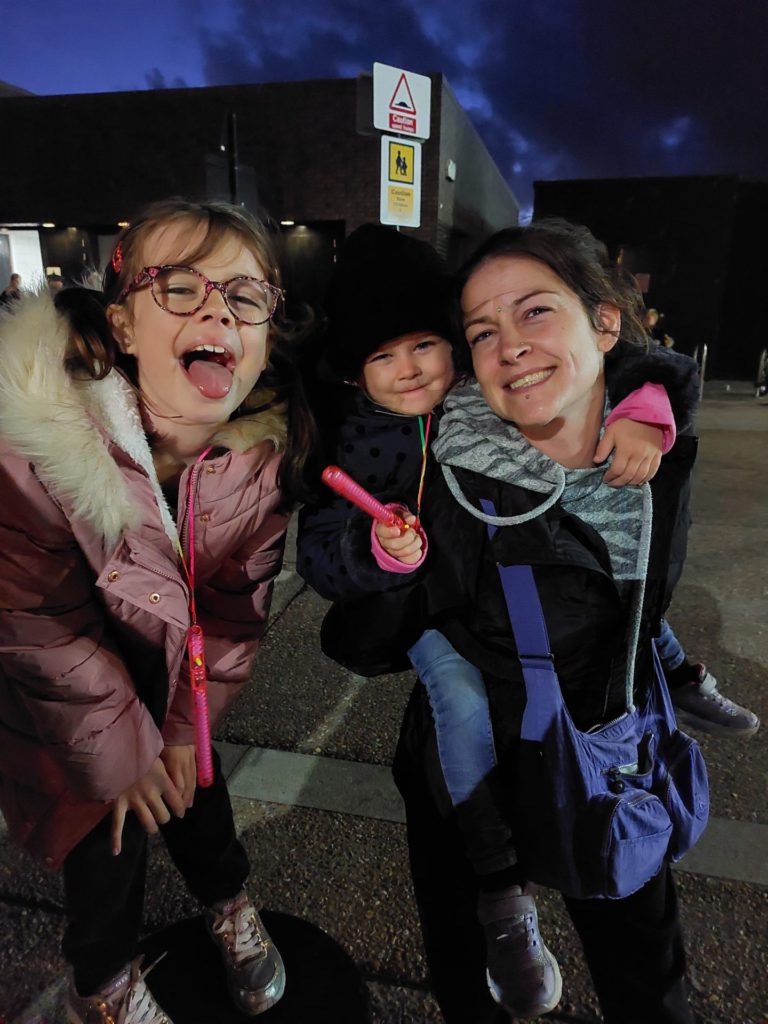
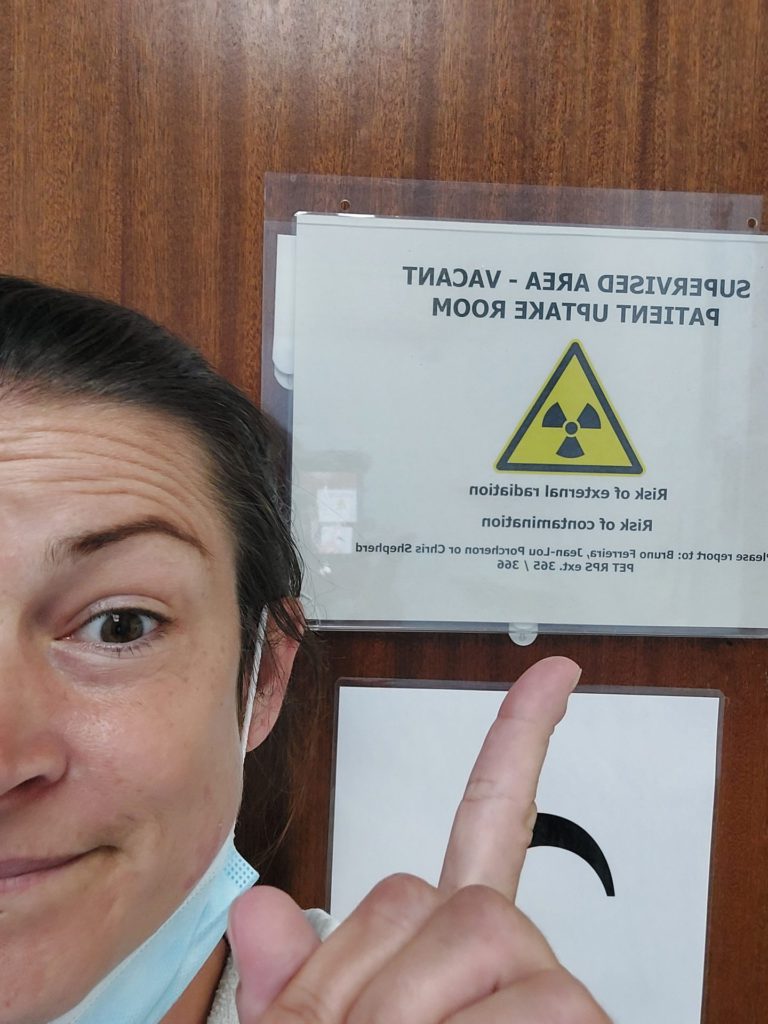
Do you live more in the moment now?
Yeah, definitely. I’m being more there with other people and sort of saying what I really think. To be honest with you, it’s kind of made me really find who I am. I was always very confident, but I’m much more confident in my person and my personality.
It’s really affirmed what I believe and how I feel, my moral compass. It’s changed my life in a good way. Cancer changed my life in a good way.
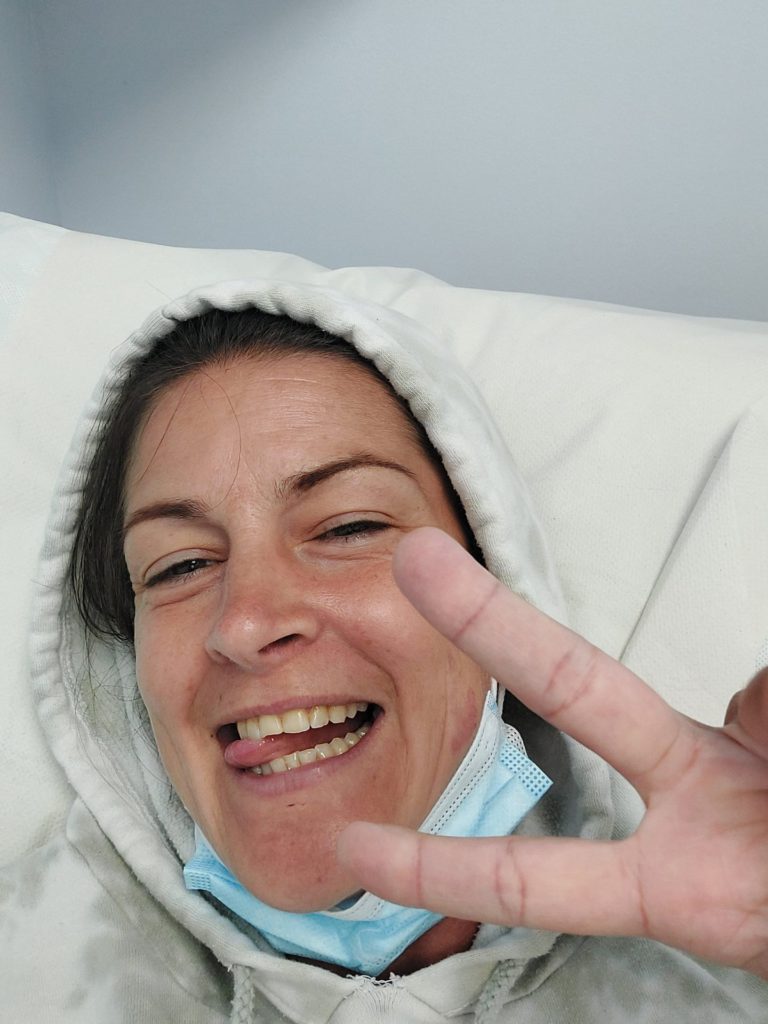
Inspired by Leanne's story?
Share your story, too!
